“If we reduce the purchasing power of the people, we can further slow down the economy, and expand taxes,” President Bola Ahmed Tinubu said in 2019 as a leader of the ruling All Progressives Congress (APC).
Even though the anti-people recommendation proposed by Tinubu at his 11th Bola Colloquium to mark his 66th birthday on March 29, 2019 received applause. Most people would have thought it was a slip. Perhaps he meant to say; slow down inflation and increase the purchasing power of the people thereby growing the economy. Those are the two econometrics that enable citizens to live in prosperity.
But since Tinubu took over power and in the face of severe degradation of the purchasing power of the people through fuel subsidy removal, Naira devaluation, hike in electricity tariff and an aggressive increased tax regime (0.05 cybersecurity levy and proposed VAT hike), Nigerians no longer think that the 2019 speech was a slip.
In his Saturday column, Farouq Kperogi, a U.S. based Nigerian professor of journalism at the Kennesaw State University, recalled the 2019 speech which he genuinely thought was one of those gaffes that almost became a signature of Tinubu during the 2023 election.
He said: “Many people were genuinely bewildered and wondered what Tinubu meant. I was, too. For one, there is clearly neither economic logic nor even moral merit in reducing the purchasing power of a people, slowing down the economy, and then taxing the same people whose purchasing power has been reduced in a depressed economy. Why would anyone propose that as the anchor of his economic policy?
“So, many people, including me, concluded that Tinubu merely slipped up. What he meant to say was inconsistent with what he actually said. It was a fair concession.”
Kperogi said the current economic policies of Tinubu shows that the 2019 speech was not a slip,
Quoting the Austrian Neurologist, Sigmund Freud, Kperogi said:“From error to error, one discovers the entire truth.”
He added: “It bears repeating that Tinubu’s first act upon being inaugurated as president was to announce the removal of petrol subsidies which, in one fell swoop, reduced the purchasing power of the people and slowed down the economy in unexampled ways.
“The “floating” of the naira merely strengthened the wickedness that the removal of petrol subsidies unleashed. The astronomical increase in electricity tariffs and the foxy dilly-dallying over increasing the national minimum wage are metaphoric rubbing of salt in the wounds of reduced purchasing power and slow economy, the necessary precursors to Tinubu’s next stage: widening the tax net.
“The “next stage” of Tinubu’s economic masterplan started in earnest on May 6 when he directed the Central Bank of Nigeria to require banks to assess a 0.05 percent ‘cybersecurity’ fee on every electronic bank transaction—in addition to multiple bank fees that have already made Nigerian banks notorious for being the only banks where you lose money by saving it there.
“While I was seething with angst at the unceasingly escalating economic assault on the poor and the weak in Nigeria in the less than one year that Tinubu has been president, I saw a headline in the Daily Trust of May 9 that almost ruined my day and convinced me beyond all shadows of doubt that Tinubu is single-mindedly determined to push through the dystopian economic vision he inadvertently articulated in 2019.
“The headline was, ‘More Burden For Nigerians As Tax Committee Recommends VAT Hike.’ The paper reported that ‘The Presidential Committee on Fiscal Policy and Tax reforms has recommended an upward review of the Value Added Tax (VAT).’
“Apparently, even the chairman of the committee, identified as Taiwo Oyedele, is aware that there would be an outcry, so he quickly said poor people and small businesses won’t be affected by the proposed increase in VAT.
“Of course, even a novice in economics knows that when companies are burdened with higher taxes, they transfer this burden to consumers, which invalidates Oyedele’s assurance that poor people and small businesses would be exempt from the impending VAT hike since inflation, which higher taxes on businesses will activate, is an ill wind that blows nobody any good.”
“If we reduce the purchasing power of the people, we can further slow down the economy. Let's widen the tax net.” ~Tinubu.
The whole thing is clear now. pic.twitter.com/Jh2xHDezVF
— Dr. Kenon (@drkenon2) May 7, 2024
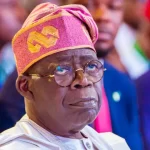


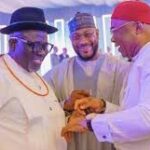
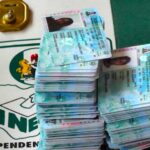

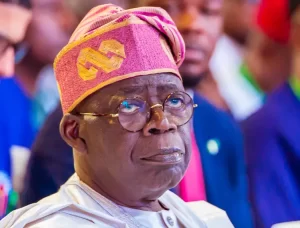

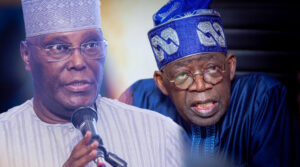

More Stories
Nigerians without PVC could vote in 2027 – INEC
Teenager in viral photo of Obi’s 2023 presidential campaign rally, Alabi Quadri languishes in jail
Ribadu tells families of kidnapped victims not to pay any ransom